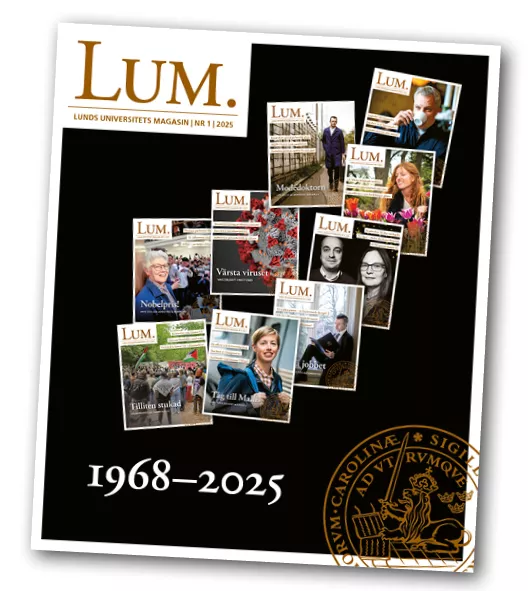Your boss may not be an app, yet. But the idea is not as futuristic as it sounds. Bicycle couriers already receive their assignments and evaluations via their mobile phones, and in large distribution centres, warehouse staff are sometimes supervised by an app instead of a human manager.
“Traditional management, supervision and recruitment tasks can already be handled by a computer program. This is particularly common in the gig economy. This type of AI management has received a lot of attention from both academia and the media, not least of a negative slant, as it has led to work environment problems,” says Sverre Spoelstra, senior lecturer in Organisational Studies at Lund University’s School of Economics and Management.
Must be relevant to the students
Sverre Spoelstra has conducted research in ethics and morality, gamification and other aspects of organisations and leadership for over twenty years. But algorithmic leadership is a new interest – and essential.
“I first heard about algorithmic leadership two years ago. I quickly realised that I had to learn more about it. How else would I remain relevant to my students?”
Sverre Spoelstra’s curiosity about the digital world and new ways of working is evident even before we start sipping our coffees at the Malmö café where he used to sit a lot and write. He glances at my somewhat old-fashioned journalistic gear: a notebook and pen. Because it’s true – AI is changing a lot in the world of work, and fast.
Leaders and managers
To understand what algorithmic leadership is, it may be worth distinguishing between leadership and management, or between natural, inspirational leaders and managers in a formal hierarchy.
“In research, there is a clear distinction between management on the one hand and leadership on the other,” says Sverre Spoelstra. There, management pertains more to that which is rule-based and hierarchical; doing what you have to do. Leadership, in contrast, does not necessarily have to be part of a formal hierarchy. Charismatic people who inspire others can also be found outside the formal management structure.
Sverre Spoelstra argues that previously, leadership was thought of something essentially human, something that machines are unable to imitate. The more administrative aspects, however, are easier to structure digitally and even gamify.
In partnership with machines
Together with research colleagues Nick Butler at Stockholm University and Emilie Hesselbo at the School of Economics and Management, Sverre Spoelstra has just started a new project on changing leadership in digitalised work environments. The plan is to interview employees in knowledge-intensive IT companies and study how managers use different computer programs to decide on budgets and motivate employees.
“The algorithmic leadership I am interested in still involves people. It is people in partnership with machines. Many of the decisions and behind-the-scenes processes may be automated, but a human being is behind them and can counter the proposals, to be more ethical, for example.”
Being aware of ethical implications
Sverre Spoelstra believes that the algorithmic approach also applies to the academic world.
“In five or ten years, the way we conduct research will have changed. The basic idea behind science is that anyone should be able to achieve the same results as someone else. This means that much is already algorithmic and suitable for machines. What will this mean for academia? It’s hard to get an overview,” he says and continues:
“On the one hand, ten years ago people said that digitalised, international education would have a major impact. Why would you choose anything other than Oxford if you could study from anywhere? Yet we still see that students want to study in a physical place and that real people are the best teachers.
To the students who will become leaders: What do they need to learn today in order to survive?
“Above all, the ability to reflect. As teachers, we should try to create an awareness and an ability to reason about the ethical implications of data-driven decisions. This will remain important, as will being an active, interested and empathetic leader who sees employees for who they are and their abilities.”



